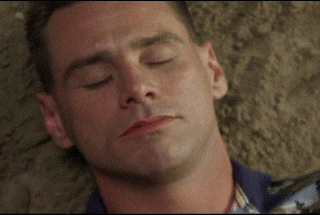As Sports One closes—temporarily?—Charlotte's black community loses ground - CharlotteFive
As Sports One closes—temporarily?—Charlotte’s black community loses ground
By
Emiene Wright
-
September 27, 2019
Sports One has a sign saying it is closed for renovations." class="td-modal-image">

Alex Cason Photography
Sports One has a sign saying it is closed for renovations.
Charlotte restaurant industry insiders are having mixed reactions to recent news
that popular establishment Sports One has been closed. The bar was hit with a federal tax lien for $236,952.51, according to
the Charlotte Business Journal, and owner Peter Thomas, a former regular on “The Real Housewives of Atlanta,” is being sued.
Amid the closing, Charlotte’s African-American community loses an upscale gathering space in the heart of Uptown, where the power elite and those aspiring went to meet friends, make deals, and flaunt — or flaut — social status.
Thomas could not be reached for comment and calls to the bar’s listed number yielded a disconnection message, but according to his Instagram page, the business is only closed temporarily. He posted on Sept. 18 that the bar on College Street would reopen the following week. A sign on the property says it is closed for renovations.
Clarence Boston, owner of Fire House Bar and Lounge, said that black restauranteurs in Charlotte make an effort to support each other’s businesses. “We loved going over there. He did very good business until they closed,” Boston said. “Different people have different gifts. Some can build great things and others are better at keeping things running smoothly. It’s very unfortunate, honestly.”
Barry Vermont owns Sage Restaurant, another Uptown eatery and lounge with primarily African-American patronage. “I’ve got no animosity toward anyone, but there is a lot of competition out here,” Vermont said. Both he and Boston said Thomas gave the impression that Sports One would reopen.
‘There wasn’t much turnover’
The closing of the bar leaves dozens of staffers suddenly without jobs, at least temporarily. Sports One opened in 2014, and Thomas had seemed to buck the high-turnover trend of the restaurant industry, with long-term employees and in-house promotions. He recently launched a Miami location,
calling it Bar One.
Kyle Murray, 31, worked at Sports One for two years, in positions ranging from host to doorman.
“No one could get in the club without going through me,” Murray said. “Being a black, gay young man, it meant a lot that this older straight owner gave me roles that put me in the forefront.”
He said during his time there, from October 2016 through the end of 2018, Thomas appeared to build good relationships, training people new to the service industry and hiring staff from nearby neighborhoods as well as Johnson C. Smith University.
“He gave us opportunity. It was my first time working in a restaurant. It was nightlife, it was fun, and there wasn’t much turnover because people were making money. The regulars tipped well,” Murray said.
Alex Cason Photography
Sports One has a sign saying it is closed for renovations.
‘Be more intentional about our support of black businesses’
It’s this kind of loss that Cathay Dawkins mourns, more so than the individual shuttering of Sports One. Dawkins is the founder of Charlotte Black Restaurant Week and worked with Thomas as part of its inaugural debut in 2017. Dawkins said the two had differences and parted ways, but he sees Sports One’s closing as part of a disturbing trend.
“It’s the third black-owned restaurant in Uptown to close since July,” Dawkins said, “and for the community, it’s a loss. It’s not just about food, it’s places to make deals, where we go to fellowship and try new cuisine or partake in familiar traditions. It’s bigger than Sports One.” Loft & Cellar
closed in July, and Sydney’s Martini & Wine Bar has been closed since July for renovations, according to its owners. Basal Coffee, about a mile and a half from Uptown in FreeMoreWest,
closed in August.
Black-owned establishments are
uniquely dependent upon black dollars to survive. Unlike white-owned restaurants, which can count on business from African-Americans and people of color, it’s anecdotally held that places with primarily black customers see much lower traffic from whites.
[Related:
For black business owners in Charlotte, where does race fit in?]
“We have some Spanish clientele,” said Boston, of Fire House. “More than white. Once they see mostly black people frequenting a business, they are not coming in.”
As a city ranked dead last in economic mobility and struggling with issues of displacement and equity, Dawkins says it’s imperative to build stable supports for black-owned businesses.
[Related:
31 black-owned shops, restaurants and studios 20 minutes from Uptown]
“When 95 percent of the people in poverty are destined to stay there, many of the black people who are able to invest in the community are not local. They’re transplants, so they’re more likely to be transient.” Dawkins said. “Both the city and the community have to be more intentional about our support of black businesses.”













